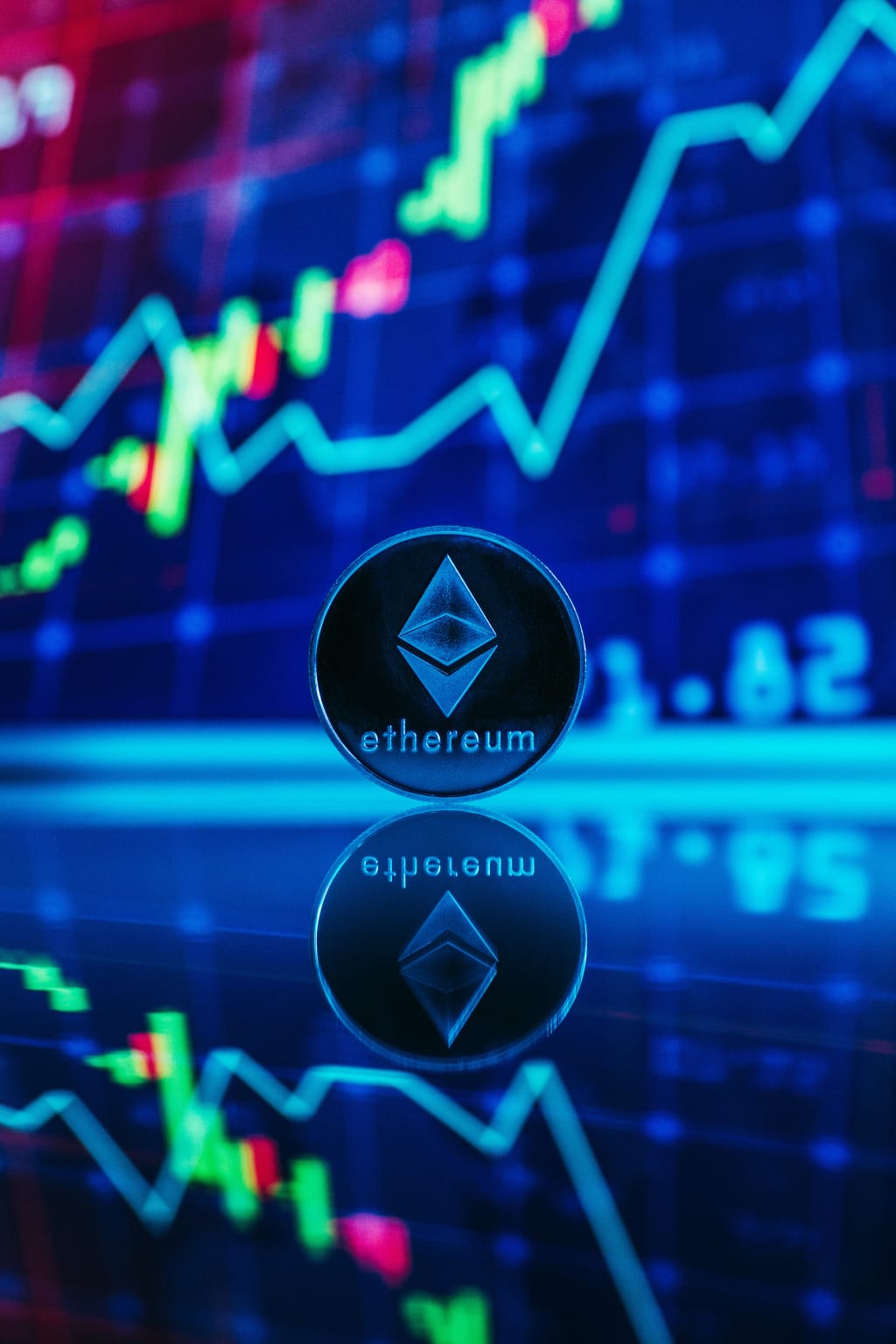How to earn using NFT in 2023!
This is an article on how to earn using NFT

Introduction
NFT or Non-Fungible Token has become a buzzword in the world of cryptocurrencies. It is a unique digital asset that uses blockchain technology to verify its ownership and transaction history. In simple terms, it is a one-of-a-kind digital asset that cannot be replicated or exchanged for something else like traditional currencies.
Many people confuse NFT with Bitcoin and other cryptocurrencies, but they are not the same. While Bitcoin is fungible (each unit has the same value), NFTs are non-fungible (each unit has a unique value). The value of an NFT depends on various factors such as scarcity, demand, and authenticity.
Data mining plays a significant role in the creation and sale of NFTs. Data miners use complex algorithms to gather data about market trends, artist popularity, and consumer behavior to determine which digital artwork or collectibles will have high demand in the market. Non-fungible tokens (NFTs) are a revolutionary new technology that is quickly becoming a popular way for individuals to generate income. NFTs have revolutionized the world of digital art, gaming, and collectibles by providing unique ownership rights. With NFTs, users can store their assets securely on the blockchain and generate passive income in the form of NFT transactions. The NFT revolution has brought about an explosion of creative, blockchain-based projects. From crypto kitties to CryptoZombies, blockchain developers are finding new ways to use this revolutionary technology.
What is the difference between ERC-20 and ERC-721? The only difference between ERC-20 and ERC-721 is that the former is a token standard. It was designed to give rise to other tokens while the latter is used to create unique digital assets.
ERC-20 and ERC-721 are two common token standards used in the world of cryptocurrency. While both of these tokens are built using the Ethereum blockchain, they have different functionalities. ERC-20 is a fungible token standard that allows for the creation of multiple identical tokens that can be exchanged with each other at equal value. This makes it easy to trade these tokens on various exchanges and platforms.
On the other hand, ERC-721 is a non-fungible token (NFT) standard that allows for unique digital assets to be created on the Ethereum blockchain. These NFTs cannot be traded at an equal value as each one is unique in its own way. This uniqueness has made NFTs popular among artists who can use them to sell their digital art pieces which can fetch high prices on various marketplaces.
In conclusion, while both ERC-20 and ERC-721 are important building blocks in creating custom cryptocurrencies or digital assets, they serve different purposes. Understanding these two standards is crucial when looking to generate income using NFTs as it allows creators to choose the right type of token standard based on their needs and goals. What are NFTs?
Benefits of Using NFTs
One of the significant benefits of using NFTs is that it provides a new way to generate income. NFTs are unique digital assets stored on a blockchain, which means they cannot be duplicated or destroyed. This uniqueness has created opportunities for artists and creators to monetize their work by selling them as one-of-a-kind digital art pieces. This allows them to earn money directly from buyers without worrying about piracy or copyright infringement.
Another benefit of using NFTs is the transparency and security provided by the blockchain technology. Each transaction made with an NFT can be traced back to its original owner, making it easier to verify ownership and prevent fraud. Additionally, since NFTs are stored on a decentralized network, they cannot be seized or blocked by governments or corporations.
Finally, using NFTs could potentially revolutionize traditional industries such as real estate, gaming, and music. For example, buying a property through an NFT would provide a secure and transparent record of ownership that could simplify the purchasing process. In gaming, players could own unique in-game items that hold value outside of just the game itself. And in music industry where royalties have always been an issue for musicians building revenue streams through block chain technology can prove highly beneficial for both consumers and producers alike .
Popular Platforms to Sell NFTs
One of the most popular platforms to sell NFTs is OpenSea. It allows creators to mint their own tokens and sell them on the marketplace. The platform has a wide range of audience that is eager to buy and trade digital assets, making it an ideal place for artists, musicians, and other creatives looking to monetize their work.
Another well-known platform for selling NFTs is Rarible. This blockchain-based marketplace is known for its user-friendly interface and low fees. It features a bidding system that allows buyers to name their price on items they want, which can lead to higher sales prices for sellers.
Lastly, SuperRare is another leading NFT marketplace that focuses solely on high-end art pieces. They have a curation process in place where each piece must be approved by the team before being listed on the platform, ensuring only quality artworks are available for sale. Their exclusivity approach helps create demand among collectors who are willing to pay top dollar for unique digital art pieces.
Strategies to Make Money with NFTs
One strategy to make money with NFTs is by creating and selling your own unique digital art. You can use various software and tools to create your artwork, mint it as an NFT, and sell it on various marketplaces such as OpenSea or Rarible. The key here is to create something that stands out from the crowd and has a demand in the market.
Another way to make money with NFTs is by investing in them. Just like traditional investments, you can buy low-priced NFTs that have potential for growth in value over time. However, investing in NFTs requires significant research, analysis of market trends and a willingness to take risks.
Finally, you can also earn passive income through staking or renting out your NFT assets. Some platforms allow you to stake or lock up your NFTs for a certain period of time in exchange for rewards such as additional tokens or exclusive access to events. You can also rent out your NFT assets to others who are looking for temporary ownership rights while paying you a fee for its use.
Tips for Creating Marketable NFTs
One of the key tips for creating marketable NFTs is to focus on the uniqueness and scarcity of your digital creation. This means that you should aim to create something that has never been seen before and cannot be easily replicated. This will increase the perceived value of your NFT, making it more attractive to collectors.
Another important consideration is the platform you choose to host your NFTs. There are a variety of different platforms available, each with their own advantages and disadvantages. Consider factors such as fees, user base, and ease of use when deciding which platform to use.
Finally, marketing plays a crucial role in generating income from your NFTs. You'll need to promote your creations on social media platforms like Twitter, Instagram or Tiktok as well as through targeted advertising campaigns in order to attract potential buyers who are interested in investing in unique digital assets. By following these tips, you can create marketable NFTs that generate significant income over time!
Challenges of Making Money with NFTs
One of the primary challenges of making money with NFTs is navigating the complex and often volatile market. The value of NFTs can fluctuate wildly, sometimes within a matter of hours or days. This makes it challenging for creators to establish consistent revenue streams from their digital assets.
Another challenge is standing out in a crowded marketplace. With so many artists, musicians, and other creatives turning to NFTs as a potential source of income, it can be difficult to make your work stand out from the crowd. This requires savvy marketing skills and an understanding of how to build your brand online.
Finally, there's the issue of accessibility. While NFTs have gained popularity among tech-savvy investors and collectors, many people are still unfamiliar with this new form of digital asset ownership. As such, educating potential buyers on the value proposition behind your specific NFT can be an uphill battle.
Conclusion: Monetizing with NFTs
In conclusion, monetizing with NFTs can be a lucrative way to generate income for creators and collectors alike. By creating unique digital assets on blockchain platforms, creators can sell them as NFTs and earn a profit. Additionally, collectors can invest in these digital assets and potentially sell them for a higher price in the future.
There are various ways that creators can monetize their NFTs such as through auctions, marketplaces or even launching their own storefront. It's important to note that the value of an NFT is subjective and depends on factors such as rarity, uniqueness and demand. Therefore, it's essential to create high-quality content that resonates with your target audience.
Overall, while monetizing with NFTs may seem like a novel concept now, it has the potential to revolutionize the art world by providing new opportunities for artists and collectors alike. As blockchain technology continues to advance and become more accessible, we can expect to see more innovative uses of NFTs in different industries beyond just art.
About the Creator
ORAL ROBERTS
I am a Freelance writer, blogger, NFT creator, and translator. I love writing in various areas such as technology, arts, cooking and blogging to name a few...Hope you like my work, share it with others if its good! Thanks!





Comments
There are no comments for this story
Be the first to respond and start the conversation.